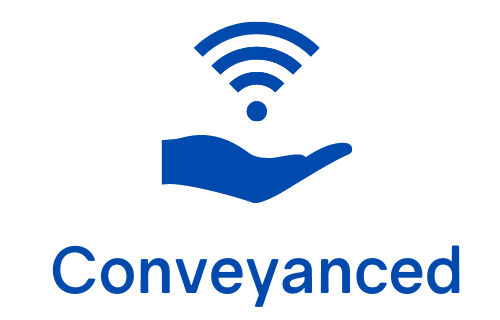Modern professionals and productivity enthusiasts rely heavily on their Android devices to manage increasingly complex schedules and responsibilities. The right combination of applications can transform a standard smartphone into a comprehensive command centre for both personal and professional tasks. However, as we integrate more tools into our daily routines, the importance of maintaining robust security practices becomes paramount. Striking the proper balance between efficiency and protecting sensitive information is essential for anyone serious about optimising their workflow whilst safeguarding their digital life.
Essential task management and organisation applications
Streamlining daily workflows with smart task managers
Task management forms the foundation of any productive routine, and several Android applications excel at helping users maintain control over their responsibilities. TickTick stands out as a comprehensive solution that combines reminders, collaborative features, and habit tracking capabilities all within a single interface. The application's ability to synchronise across devices ensures that important tasks remain accessible regardless of which device you happen to be using at any given moment. For those who appreciate a more methodical approach, Todoist offers an elegant system for organising and prioritising tasks using the Getting Things Done methodology, with pricing starting from approximately four pounds monthly for premium features. The application rewards consistent usage patterns and helps users visualise their productivity progress over time. Meanwhile, Any.do presents a streamlined alternative particularly well-suited to Android users, offering both free and premium tiers that cater to varying levels of complexity. For individuals seeking a more gamified approach to task completion, Habitica transforms mundane to-do lists into an engaging experience by treating real-world responsibilities as quests within a role-playing game framework. This novel approach can prove particularly effective for those who struggle with conventional task management systems and respond well to visual rewards and progress indicators.
Digital note-taking solutions for modern professionals
Capturing and organising information efficiently separates truly productive individuals from those who merely stay busy. Evernote has long maintained its position as a premier note-taking solution, providing robust features for collecting ideas, annotating documents, and maintaining searchable archives of important information. The platform operates seamlessly across mobiles, web interfaces, and desktop applications, with paid plans beginning at roughly fifty-five pounds annually. For professionals seeking greater customisation options, Notion represents the Swiss Army knife of productivity applications, combining note-taking, project management, and database functionality into a unified workspace. The application's flexibility allows teams to create bespoke systems tailored to their specific workflows, though this versatility can initially present a learning curve for new users. Pricing for Notion's Plus plan begins at ten pounds per user monthly. Those preferring simplicity might find Google Keep more appropriate for their needs, offering a straightforward solution for quick notes and reminders that integrates naturally with the broader Google ecosystem. The application excels at capturing fleeting thoughts and provides excellent synchronisation across all connected devices without requiring any financial investment. For individuals who regularly work with PDF documents, Adobe Acrobat Reader delivers essential functionality for viewing and annotating files whilst maintaining compatibility across different platforms and devices.
Collaborative tools for enhanced team productivity
Visual project management platforms
When multiple individuals work together towards shared objectives, visual organisation tools become invaluable for maintaining clarity and momentum. Trello pioneered the Kanban-style approach to project management, utilising boards and cards to create intuitive representations of workflow progression. This visual methodology allows team members to quickly assess project status and identify potential bottlenecks before they become problematic. The platform offers both free and paid tiers, though users should be aware that boards can become cluttered if not maintained with appropriate discipline. Plaky provides another option for productive daily planning with customisable features that adapt to various team structures and working styles. For organisations requiring more comprehensive solutions, Asana delivers sophisticated team-based task management capabilities with premium features priced around ninety-five pounds monthly per person. The application helps ensure everyone remains aligned on priorities and deadlines, reducing the confusion that often accompanies complex collaborative projects. ClickUp attempts to balance task management with note-taking functionality, though its premium tiers may represent a significant investment for smaller teams or individual users seeking advanced features.
Unified workspace solutions for business teams
Google Workspace represents a foundational productivity suite that integrates email, document creation, spreadsheets, presentations, and calendar scheduling into a cohesive ecosystem. Pricing begins at six pounds per user monthly for the Business Starter plan, making it accessible for organisations of various sizes. The platform's real strength lies in its seamless integration between different applications, allowing information to flow naturally from one tool to another without requiring manual transfers or complex workarounds. Microsoft Teams provides an alternative unified communication platform that combines messaging, video conferencing, and file collaboration within a single environment. For businesses already invested in the Microsoft ecosystem, this represents a logical extension of existing tools and workflows. VMware Boxer offers specialised email management capabilities for professionals who require sophisticated inbox organisation beyond what standard email applications provide. Meanwhile, platforms like Slack facilitate rapid communication between team members whilst providing integration capabilities with thousands of other business applications through services such as Zapier, which connects over eight thousand different apps to create customised automation workflows that eliminate repetitive manual tasks.
Focus and time management strategies
Applications for minimising distractions
 Maintaining concentration in an era of constant notifications and digital interruptions requires deliberate effort and appropriate supporting tools. Forest employs a clever psychological approach by planting a virtual tree that grows whilst you remain focused on your work and withers if you succumb to distractions by leaving the application. This simple gamification technique proves surprisingly effective at encouraging sustained attention and reducing the temptation to check social media or other non-essential applications during designated work periods. Tide offers audio-based focus enhancement through carefully selected soundscapes designed to promote concentration and mental clarity. The base application comes free, with additional audio files available for modest fees. For those seeking detailed insights into how they actually spend their time, RescueTime operates passively in the background, tracking application usage and providing comprehensive reports about productivity patterns. The premium version, priced at approximately fifty-seven pounds annually, offers additional features including detailed analytics and the ability to block distracting websites during designated focus periods. Actions appeals to minimalists who prefer streamlined interfaces without unnecessary complexity, though it does require a paid subscription rather than offering a free tier.
Maintaining concentration in an era of constant notifications and digital interruptions requires deliberate effort and appropriate supporting tools. Forest employs a clever psychological approach by planting a virtual tree that grows whilst you remain focused on your work and withers if you succumb to distractions by leaving the application. This simple gamification technique proves surprisingly effective at encouraging sustained attention and reducing the temptation to check social media or other non-essential applications during designated work periods. Tide offers audio-based focus enhancement through carefully selected soundscapes designed to promote concentration and mental clarity. The base application comes free, with additional audio files available for modest fees. For those seeking detailed insights into how they actually spend their time, RescueTime operates passively in the background, tracking application usage and providing comprehensive reports about productivity patterns. The premium version, priced at approximately fifty-seven pounds annually, offers additional features including detailed analytics and the ability to block distracting websites during designated focus periods. Actions appeals to minimalists who prefer streamlined interfaces without unnecessary complexity, though it does require a paid subscription rather than offering a free tier.
Calendar integration and scheduling efficiency
Effective time management begins with clear visibility into commitments and available capacity. Google Calendar remains the definitive scheduling solution for many professionals, offering intuitive interfaces, seamless integration with other Google services, and the ability to share calendars with colleagues or family members. The application handles both individual appointments and team scheduling with equal competence whilst remaining entirely free to use. Sunsama provides a more structured approach to daily planning that proves particularly valuable for individuals new to systematic time management, though it does require a financial commitment without offering a free option for evaluation. Structured focuses on helping users manage smaller tasks throughout the day with both free and paid features, ensuring that minor responsibilities do not fall through the cracks amid larger project demands. For those who appreciate the timeboxing methodology, Ellie Planner offers dedicated features for allocating specific time blocks to particular tasks, though most advanced capabilities require upgrading to paid tiers. Clockify delivers comprehensive time tracking functionality with both free and paid plans, providing detailed insights into how minutes and hours actually get allocated across various activities. Whilst the depth of information can prove invaluable for billing purposes or personal productivity analysis, simpler planning needs may find the application somewhat excessive in its detail.
Securing your productivity arsenal: password management best practices
Protecting sensitive information across multiple applications
As professionals incorporate increasing numbers of applications into their daily workflows, the challenge of managing authentication credentials becomes more pressing. Password management represents a critical component of digital security that too often receives insufficient attention until a breach occurs. LastPass pioneered consumer-friendly password management solutions, offering secure storage for login credentials alongside the ability to generate strong, unique passwords for each service. The platform provides a free tier with basic functionality, whilst premium features begin at roughly one pound fifty-nine monthly. For individuals seeking alternatives, 1Password delivers similar capabilities with a personal plan priced at approximately two pounds ninety-nine each month. These services eliminate the dangerous practice of reusing passwords across multiple platforms, which remains one of the most common security vulnerabilities exploited by malicious actors. When evaluating productivity applications, users should carefully examine what permissions each tool requests and whether those requirements seem reasonable given the application's stated functionality. Excessive permission requests or vague explanations about data usage should raise immediate concerns about an application's true intentions and security practices.
Implementing robust authentication methods for productivity tools
Beyond password management, comprehensive security requires consideration of how different productivity tools handle sensitive information and whether they support advanced authentication methods. Many enterprise-grade solutions now offer integration with single sign-on systems that reduce the number of separate credentials users must manage whilst maintaining security through centralised authentication protocols. Applications such as Signal demonstrate that robust security need not come at the expense of usability, providing encrypted messaging capabilities without complicated setup procedures or ongoing costs. When selecting productivity applications, professionals should prioritise tools that offer two-factor authentication options, ensuring that compromised passwords alone cannot grant unauthorised access to important accounts. Regular security updates represent another crucial indicator of an application's commitment to protecting user data, with infrequent updates serving as a red flag suggesting potential vulnerabilities may persist unaddressed. Zapier's enterprise-grade security features demonstrate how automation platforms can maintain robust protection whilst connecting thousands of different services, though users must remain vigilant about which applications they grant access to their data and what permissions those integrations require. Ultimately, the most sophisticated productivity system provides little value if poor security practices result in data breaches or unauthorised access to sensitive information. Balancing efficiency with appropriate safeguards ensures that productivity enhancements do not inadvertently create new vulnerabilities that compromise personal or professional information.



